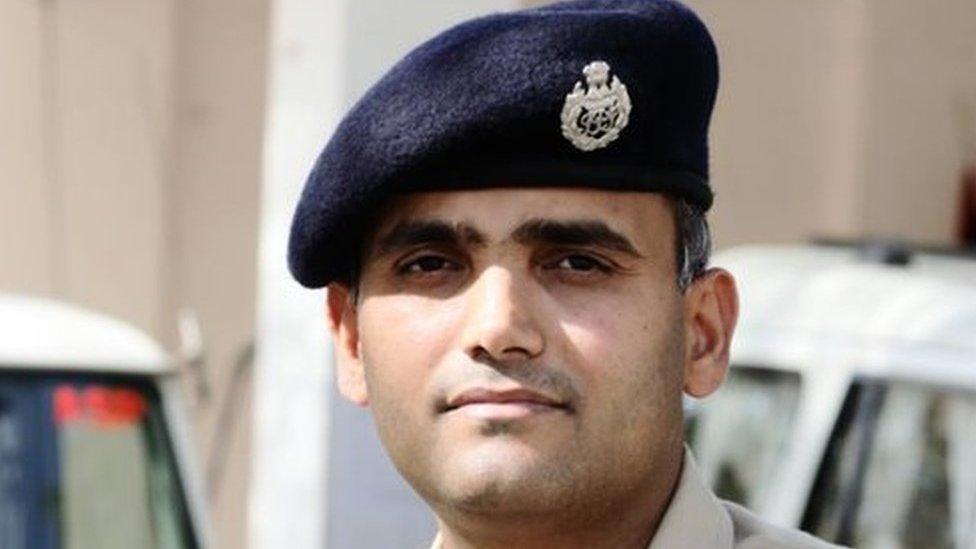The Indian diver who has saved more than 100 lives
- Published
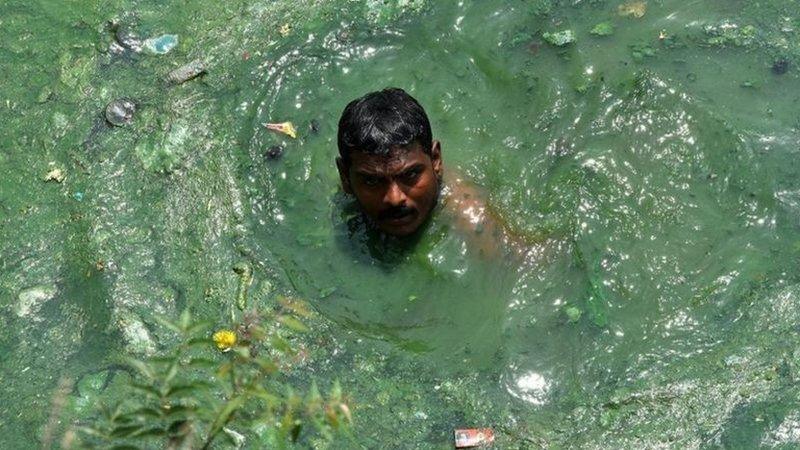
Shiva says he has saved 114 lives so far
For years, Shiva helped police find bodies in Hussain Sagar lake in the southern Indian city of Hyderabad. And then one day, he stopped someone before they jumped, saving a life for the first time. BBC Telugu's Balla Satish reports.
Shiva, who uses only one name, says he was about 10 years old when he came across a group of policemen who were offering to pay anyone who would bring a body out of a nearby pond.
Police in India are underfunded and poorly trained. Many don't know how to swim and are not given funds to hire professional divers. So it's not uncommon for them to rely on such informal, even risky, arrangements.
But when Shiva volunteered, he says, they were taken aback. "They initially refused saying I was too young. But I convinced them," he recalls.
He did the job and walked away with 40 rupees, now worth about $0.54 or £0.42 but a decent sum for him at the time.
That was 20 years ago. He is now 30 and still helping the local police.
Shiva lives right by Hussain Sagar, a large artificial lake in the heart of the city. A popular tourist spot, the lake is also used during the Ganesha festival for immersing idols of the Hindu deity.
The statues disintegrate under water and Shiva fishes out the iron rods they are made of to sell to recyclers.
But the lake is also a place where many come to die and Shiva often helps police retrieve bodies out of the water. Sometimes, he also helps them recover bodies from other rivers and lakes in the city.
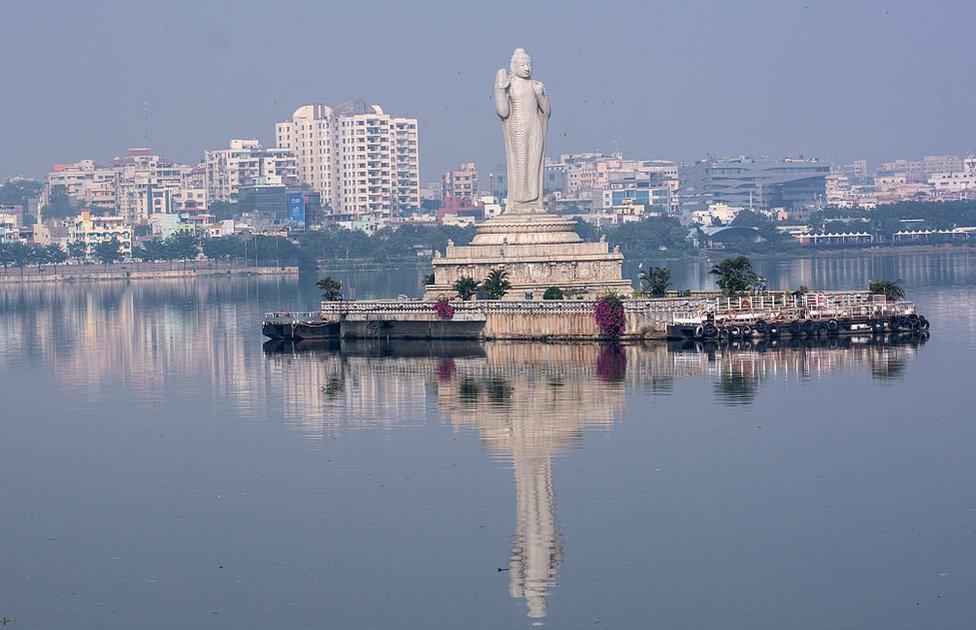
The man-made Hussain Sagar lake is in the centre of Hyderabad
Shiva does more than pulling bodies out of the lake - he often saves people before they jump into the water, and sometimes even after that.
"I have lost count of how many bodies I have found. But I have saved 114 lives," he told the BBC.
He is now also training his wife to swim so she can help retrieve bodies of women.
Inspector B Dhanalakshmi, who's posted at the police station near Hussain Sagar lake, acknowledges that Shiva has been "a huge help" to them.
"I can't confirm how many people he has saved over the years, but I believe it's more than 100," she told the BBC. Suicide is still a crime in India and many people Shiva saves run away even before he can call the police.
Shiva says he never knew his parents and spent most of his childhood on the streets, with brief spells in orphanages. At some point - he can't be sure how old he was - he started living with a woman and her children who were also homeless. He grew close to them and it was one of her sons who taught him how to swim, a skill that changed the course of his life.

Read more of BBC Telugu coverage

"I have lost a lot of friends over the years - to addictions, to disease, to hunger, to accidents," he says. The boy who taught him to swim - "my brother Lakshman," he calls him - accidentally drowned and another close friend died while trying to save someone else.
He says because he couldn't save them, he's trying to make up for that by saving others.
Saving lives brings him some extra money - sometimes people he saves pay him as a token of their gratitude. And coverage in the local press has turned him into a minor celebrity and fetched him small roles in Telugu films. But Shiva says he doesn't consider saving lives a job.
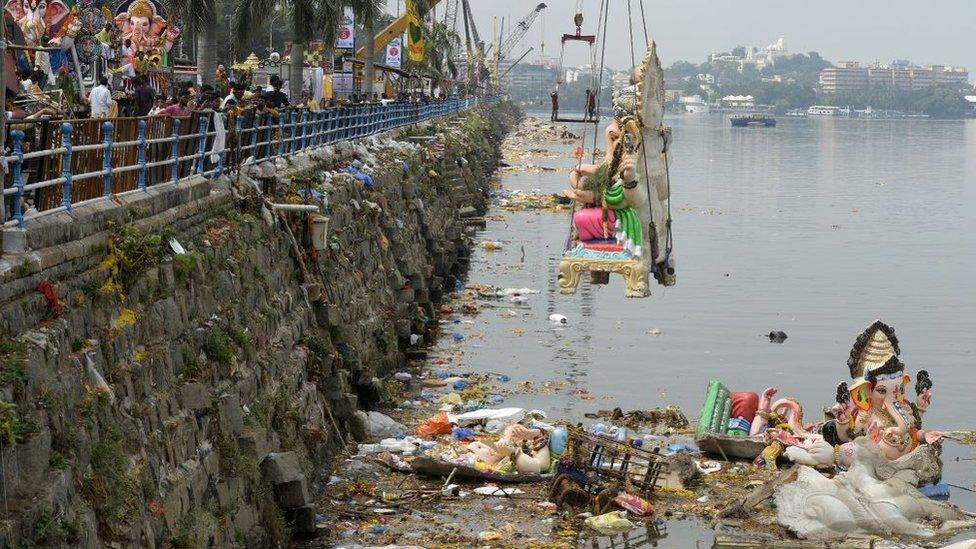
The lake is a popular spot for immersing idols of Lord Ganesha
People's motives for suicide, he says, vary - from exam pressures to love affairs gone wrong to family feuds and financial woes. He says sometimes the elderly try to kill themselves when they are abandoned by their children.
Recently, he says he saw a man jump into the lake, fearing he might have contracted the coronavirus. The man's friend then jumped in to save him and Shiva too jumped in, but he was only able to save the friend. He says the dead man's family members didn't even take the body, afraid of catching the virus.
"So I cremated him," he says. "I saved another man who said his family had begun to neglect him since they thought he had the virus."
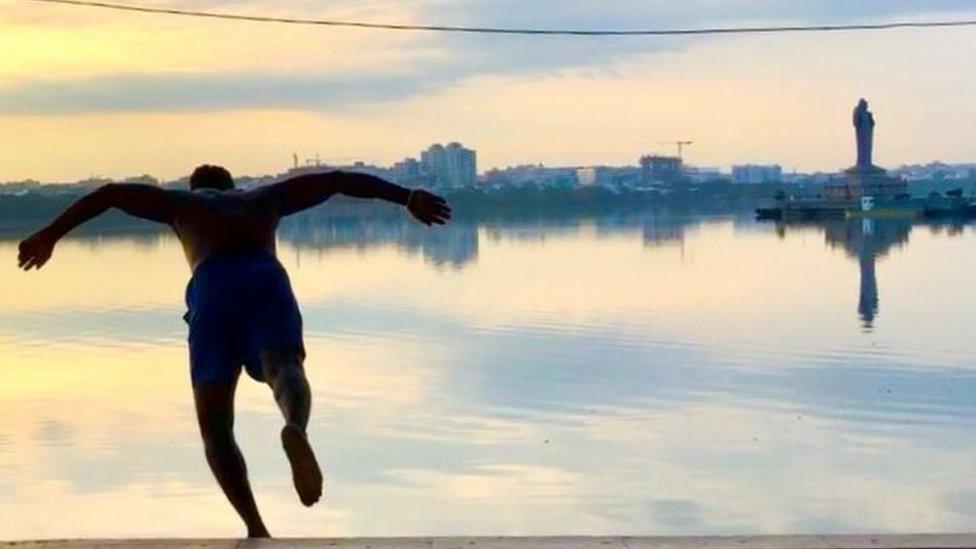
Shiva has become a local celebrity in his community because of his work
But his work comes at a cost - Hussain Sagar is heavily polluted and Shiva, who dives into the water regularly with no gear or suit, says he has developed skin rashes and caught other ailments, including a bout of typhoid.
"There is no time to put on any gear. You have to react fast. If you see someone jump, you have to jump right away."
The lake also smells foul during the summer and snakes are commonly found on its shores, but Shiva has no plans to move on.
"I want to stay here," he says. "Only if I stay here, I can save lives. The satisfaction of saving a life is supreme."
Read the story on BBC Telugu here

Information and support
If you or someone you know needs support for issues about emotional distress, these organisations may be able to help.
If you are in India and are feeling emotionally distressed, visit Aasra, external and Befrienders International, external for more information about support services.

- Published30 April 2017
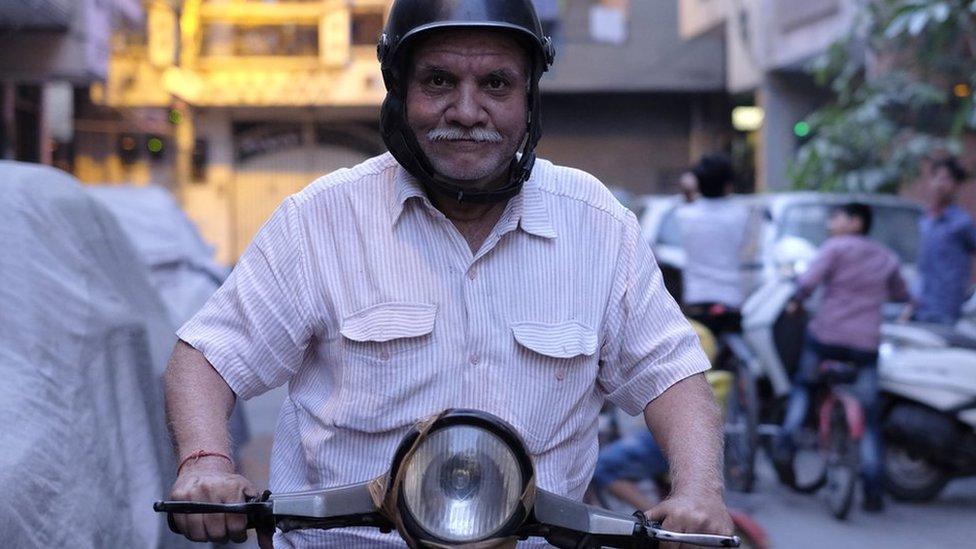
- Published28 February 2020
